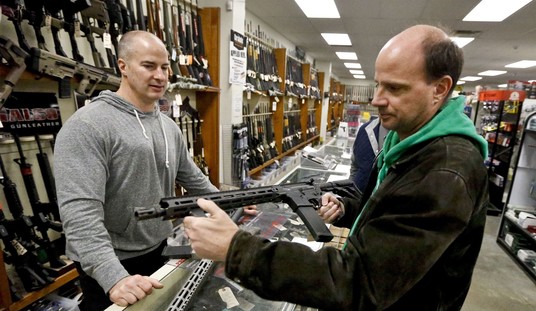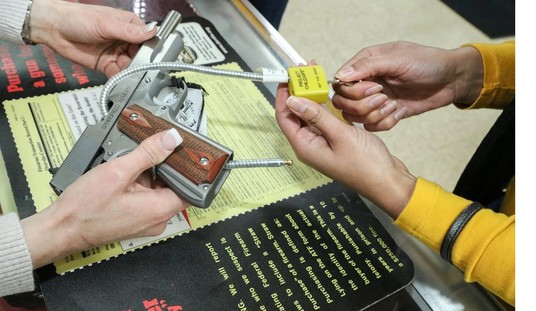Providence, Rhode Island is like many Democrat-controlled cities at the moment; protests on a regular basis (including agitators accosting people who are eating and demanding they show solidarity with demonstrators) and a rising violent crime rate. There’ve been five homicides in the past two weeks (none of which have drawn any protests of their own), and local officials are promising to “do something” to address the growing chaos in some of the city’s high-crime neighborhoods. Unfortunately what they’re offering is what I call a “soundbite solution”: something that sounds good in front of the cameras, but does absolutely nothing to actually address the problem.
In this case the soundbite solution is a so-called gun buyback. City councilwoman Jo-Ann Ryan is proposing that the city collect firearms, no questions asked, in exchange for a gift card or a small amount of cash. Her hope is that the compensated confiscation event will lead to “fewer guns on the streets,” though local news website GoLocalProv recently pointed out that there’s not much evidence to suggest that buyback events benefit anyone other than the politicians who garner a few headlines for proposing them.
After GoLocal asked Ryan why she thought a gun buyback program would be effective, she said in a statement, “My proposal for a gun buyback program is part of a larger goal in which the City would continue its work with organizations like the Institute for Non-Violence, and the Council continuing to advocate for and support both state and federal sensible gun legislation. Some past studies have shown that gun buybacks by themselves were thought to be ineffective in directly reducing violent gun crime.”
She added, however, there has been “more recent research that shows when buybacks are coupled with a more holistic approach, it can help in the reduction of gun violence overall.”
GoLocal requested links to the research, Ryan did not respond.
It sounds like Ryan has been reading this piece from Journalists Resource, which also claims that “recent research frames gun buybacks in a more favorable light. On their own, buybacks might not be effective if the goal is to use them to directly reduce violent crime. But research shows buybacks can help if they’re part of a broader effort to reduce gun violence.”
What evidence do they cite? Not much, honestly.
Garen Winmute, director of the Violence Prevention Research Program at the University of California, Davis, told the news outlet Governing in 2013 that violent crime rates might not be the best measure of success for gun buybacks, and that community engagement and education on gun safety during buybacks also have value…
A 2013 evaluation of a multiyear gun buyback program in Buffalo, New York, found no effect on violent gun crime, including homicides. The authors also note that different parties, like law enforcement officers and politicians, may measure the success of gun buybacks in different ways.
“Given the empirical evidence, police agencies may use gun buyback programs not with the expectation of reducing violent crime, but to satisfy the public’s expectations,” the authors write. “When serious crime problems occur, mayors and police chiefs are under pressure from their constituents to ‘do something dramatic and effective’ about the violence.”
None of the “more recent research” shows that compensated confiscation programs do anything to reduce violent crime. Instead, anti-gun researchers like Garen Wintemute have to claim that the buybacks help with “engagement and education on gun safety,” which sounds like something that could be done without offering up cash or gift cards for firearms.
The study of Buffalo’s buyback got it right. These programs are most often put in place to satisfy the public’s expectation that officials are going to “do something” about the violence. Gun buybacks are neither dramatic nor effective, however. They’re a soundbite solution meant to benefit the approval ratings of politicians far more than the safety of the general public.









Join the conversation as a VIP Member